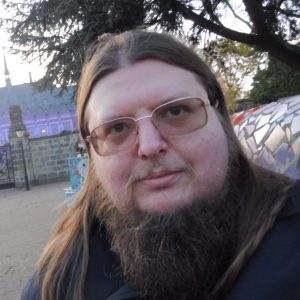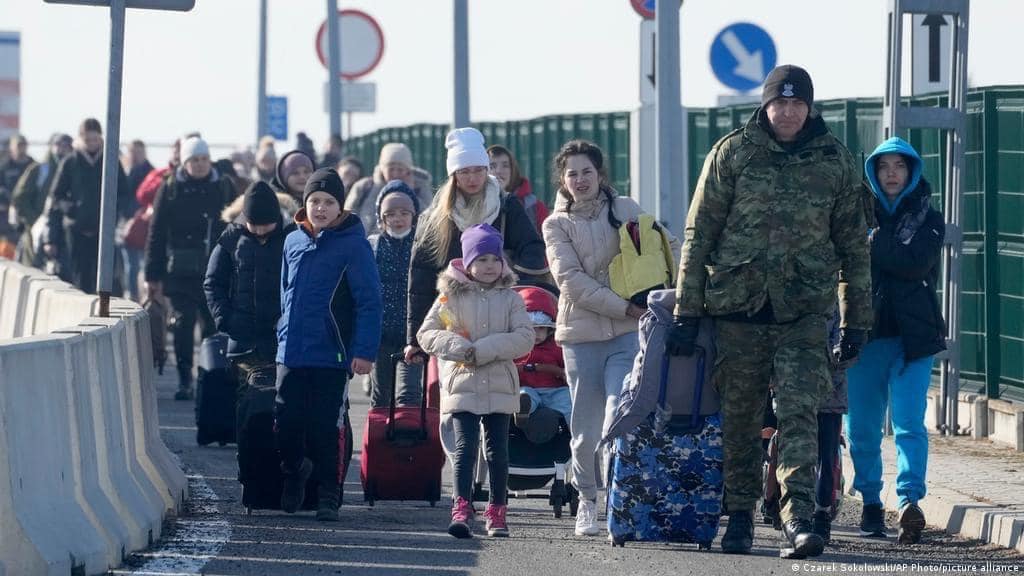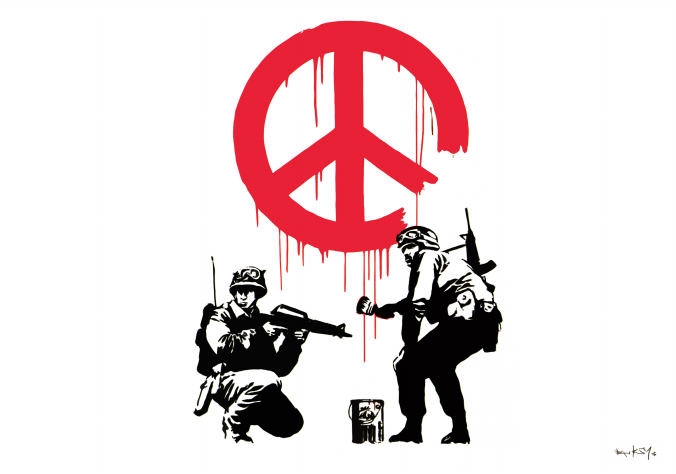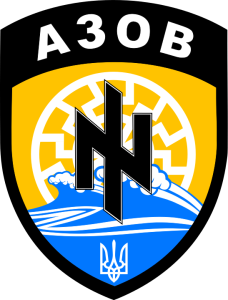Resisting Militarism: Mission Impossible?
MILITARISM, 4 Apr 2022
Sean Howard | Cape Breton Spectator – TRANSCEND Media Service
“I want to escape from my own threshold.
Where to? The street is dark
And conscience shows up ahead of me, white,
Like salt scattered for pavements.”— Osip Mandelshtam (1891-1938)
30 Mar 2022 – On 23 January 2015, 49-year-old Ruslan Kotsaba – journalist and blogger, president of the Ukrainian Pacifist Society and an initial supporter of the 2014 Revolution which ousted pro-Russian President Viktor Yanukovych – visited the eastern Donbas region where rebels, backed by Moscow, were waging a brutal war of independence. The brutality, however, was evident on both sides, and with conscript pitted against conscript Kotsaba posted a YouTube message to President Petro Poroshenko:
I know that mobilization is declared under martial law. I would rather go to prison than go into civil war now and kill my compatriots who live in the East. …I will not take part in this fratricidal war.

Ruslan Kotsaba on 12 December 2013, during protests outside the Prosecutor General’s Office of Ukraine on Riznytska Street, (Photo by Mykola Vasylechko via Wikimedia Commons)
On February 7, Kotsaba was detained, charged with “high treason” and “obstructing the lawful activities of the Ukrainian military.” He spent 16 months in appalling pre-trial conditions, during which Amnesty International named him their first prisoner-of-conscience in Ukraine since the Revolution, decrying his “treatment” as “a brazen restriction on the right to freedom of expression…one of the fundamental rallying cries of the [2014] protestors.”
Amnesty placed Kotsaba’s case in the context of “a string of suspicious deaths of former allies” of Yanukovych, including journalist Oles Buzyna, shot in broad Kyiv daylight in April 2015: an orgy of “mob violence” perpetrated with suspicious ease by far-right paramilitaries also responsible for numerous atrocities in the Donbas war. A week after Kotsaba’s arrest, France and Germany brokered the ‘Minsk-II’ ceasefire agreement which – if implemented by Poroshenko or his ‘peace ticket’ successor, Volodymyr Zelenskiy – would have preserved Ukraine’s territorial integrity (minus Crimea, annexed by Russia after Yanukovych’s ouster) at what now seems the bargain price of regional autonomy for the two self-declared ‘People’s Republics’ of Donetsk and Luhansk. Instead, ‘low-level’ fighting – a pretext for President Vladimir Putin’s unconscionable invasion – claimed thousands of lives, many of them conscripts celebrated as ‘heroes’ by a state that sometimes resorted to “hunting for draftees.”
This, alas, is not Russian propaganda. In September 2019, the Office of the United Nations High Commissioner for Human Rights (OHCHR) – painting a grim general picture of endemic state and non-state violence and abuse – condemned “forced conscription” in Ukraine, the breakaway Republics and Crimea. The OHCHR urged the Ministry of Defense to “take measures to ensure that military commissariats cease the practice of arbitrary arrest and ill-treatment in the context of conscription,” and urged law enforcement agencies to “investigate all cases of arbitrary detention.” A 2020 study by the European Bureau of Conscientious Objection homed in on the horror by reference to, appropriately, two brothers who refused to take up arms:
Yehor Potamanov was abducted by police and military commissariat during the raid for conscripts on the streets of the city [of Lviv, now thronged with refugees, near the Polish border] when he was taking his sick father to the hospital with his brother. Protesting against the abduction, Yehor resorted to a week-long hunger strike and refused to take a military oath. According to Dmytro, brother of Yehor, hundreds of conscripts were abducted in the same way in the streets of Kharkiv [now war-ravaged, on the border with Russia] that summer. Three of them cut their veins and one hanged himself in desperate attempts to get an exemption from the draft on the grounds of mental disorder.
Similar or even grimmer stories abound across Russia where, since 1989, the Committee of Soldiers’ Mothers of Russia (CSMR) has waged a brave campaign against the multiple physical and psychological abuses of troops and, most cruelly, of conscripts at that time leading to around 5,000 suicides per year. Accepting the Right Livelihood Award in 1996, CSMR stressed that the soldiers’ mothers quickly:
…understood that to defend their children they have to change the state and the society. Their call for human rights in all the military power structures meant a call for democracy.

The Committee of Soldiers’ Mothers of Russia (CSMR), 1996. (Photo via Right Livelihood)
Twenty-six years later, as a Russian leader sent more ‘heroes’ into new Valleys of Death, CSMR’s Valentina Melnikova lamented that:
…like the wars in Afghanistan, Chechnya, and Georgia, no one gets asked before being sent out on combat operations. Willing or not, by conscription or by contract, they send everyone considered necessary.
Theirs is not to question why…
In May 2016, Kotsaba was acquitted of treason but sentenced to three-and-a half-years for “obstructing” a war that had never been formally declared — an omission, he argued, invalidating the conscription decree. In June, he unexpectedly won an appeal against the verdict and was released, only to be recharged (on both counts) and tried again, beginning in November 2020. Though at liberty, his victimization continued: in January 2021, he, his mother and his lawyer were assaulted by far-right hooligans (chanting ‘Death to Enemies!’ and ‘Glory to Ukraine!’) on their way to court; and in June, as his case crawled on, he required surgery to save his sight after a “neo-Nazi gang” burnt his retina with ‘zelenka,’ the brilliant green dye weaponized by pro-Putin thugs against Alexei Navalny and other Russian dissidents.

Yurii Sheliazhenko (Source: World Beyond War)
Unable to find up-to-date information on Kotsaba’s case (or condition), I contacted Yurii Sheliazhenko, executive secretary of the Ukrainian Pacifist Movement, in Kyiv. In a March 20 email, Sheliazhenko told me “the next hearings” in the re-trial “are formally scheduled for April,” and, if held, would merely continue “to summon and interrogate witnesses who know nothing and were called just to say that Ruslan’s video created popular sentiment against military service.” The “formal pretext,” he explained, “for quashing Ruslan’s acquittal was that the court did not proceed with all testimonies and wrongly treated them as irrelevant”: “In fact, they are indeed irrelevant, but the high court (under pressure of neo-Nazis)” made them “a formal pretext” for acquittal, and “so the lower court” feels “obliged to continue this circus of political prosecution.”
Responding to my latest Spectator column, Sheliazhenko wrote “you are right that ‘war scares inevitably generate…an almost hallucinogenic, dehumanizing, self-righteous hatred of the Other.’” “It already did that,” he added, referring in part to how, since the invasion, most of “Ruslan’s pro-Russian friends have been arrested.” Many will belong to that vast category — ‘men of fighting age’ (18-60) — banned from leaving the country and now liable to be either armed or interned. And on the day of Sheliazhenko’s email, Ukraine’s National Security and Defense Council banned (for the duration of martial law) no fewer than 11 ‘pro-Russian’ political parties, including the Platform for Life party with around 10% of all seats in parliament (44 of 450). “The activities of those politicians aimed at division or collusion,” Zelenskiy vowed, “will not succeed, but will receive a harsh response;” and “the “political move comes,” The Guardian reported, as the president “aims to further assert his influence over the country’s media sphere,” signing “a decree that aims to unite all national TV channels into one, citing the importance of a ‘unified information policy.’”
It is important to stress that being a ‘pro-Russian’ Ukrainian does not equate to being an anti-Ukrainian Russian; to being a traitor or saboteur; or to having no sympathy with the many thousands of genuinely heroic Russians – “scum and traitors,” in Putin’s words -– protesting in myriad non-violent ways, often with women’s groups in the vanguard, the insane ‘special military operation’ ordered by their leader.

“Saint Javelin” sticker. (Source: Saint Javelin website)
What it generally does equate to is a dedication to protecting Russian culture and language, and opposition to an alienating ‘pro-Westernism’ – insultingly consigning Russia to the ‘uncivilized’ edge of ‘Europe proper’ – seeking militarized expression in NATO membership. (This ‘Othering’ can also be seen in the disgraceful treatment by both Ukrainian and Polish officials of non-white refugees; and in the widespread shock that ‘civilized’ Europe should endure the kind of ‘savage’ conflict common ‘elsewhere’ – often, it should be said, ‘elsewheres’ (Iraq, Libya, etc) Western countries have invaded. Writing in open Democracy on February 7, Almut Rochowanski asked “What would real peacekeeping in Ukraine look like?” arguing that it “begins with dismantling” the “dogma” that:
Ukraine is a country of united citizens who have made a ‘civilizational choice’ to turn West and are happily embarking on a process of cultural-linguistic homogenization. Instead, Ukraine was in 2013-14, and is today, a country with great, intersectional diversity and consequent complex fault lines.
We need, in short, emergency rations of what the Russian poet Osip Mandelshtam identified as Stalin’s worst fear: “the nightmare of nuance.” So dumbly Russophobic has the general Western response to the war been, however, that it is possible to imagine calls for a reading of Mandelshtam’s poems to be cancelled, just as – as Noam Chomsky scathingly lamented:
…an Italian university tried to ban a series of lectures on Dostoyevsky, to take just one of many egregious examples of how Europeans are making fools of themselves.
Such a vacuum of analysis is often filled with kitsch tastelessness, as in the egregious Canadian example of ‘Saint Javelin,’ marketer Christian Borys’ depiction of what the BBC called “the unlikeliest of all images – a rocket-armed saint”: the Virgin Mary, no less, dapper in Ukrainian blue-and-yellow, “cradling a US-made FGM-148 anti-tank weapon”. Borys, donating 100% of profits to Ukrainian relief efforts, seems sincerely motivated to help, and was thrilled at the “completely viral” response from an equally sincere Canadian public. But that’s the point: faced with the almost cubist complexities of Ukrainian-Russian history and culture – and given the desperate need to make peace not war in a nuclear-powderkeg Europe — such sincerity becomes, like ‘Saint Javelin’ herself, a simply sick joke.
Putin himself can be Simplifier-in-Chief, making the job of ‘nuance-nerds’ like Rochowanski even harder (and easier, ironically, to depict as ‘naïve’). Putin is prone, for example, to grossly exaggerating the scale of the assault on the Russian language in post-2014 Ukraine. But an attack is nonetheless under way, as Human Rights Watch’s Rachel Denber observed, commenting on a January 2022 state language law requiring that only Ukrainian “be used in most aspects of public life,” and compelling “print media outlets registered in Ukraine to publish in Ukrainian.” And as Denber notes, insult is then added to injury:
Article 25, regarding print media outlets, makes exceptions for certain minority languages, English, and official EU languages, but not for Russian.

Vladimir Putin, 24 February 2022
While it is obviously hyper-ironic for Putin to justify a war of illegal aggression on the grounds of ‘demilitarization,’ that does not mean we need to glorify (our own) militarism; flood Ukraine, a country with a notorious black market in arms, with weapons; comprehensively neglect to launch or encourage serious peace initiatives or mediation efforts; or embrace — as Germany, most spectacularly, is now doing – programs of manic re-armament. As Sheliazhenko reminded Democracy Now! viewers on March 1, upon taking office in 2019 Zelenskiy “totally surrendered to the war machine,” while the “peace movement” continued to warn that “reckless militarization will lead to war. We were right.” Likewise, while Putin’s claim that Ukraine’s leadership (including its first Jewish President?) requires ‘de-Nazification’ is absurd, it is “extraordinarily frustrating,” as Ukrainian-American journalist Lev Golinkin told Democracy Now!:
…to see people are saying it’s one of two things: It’s either ‘Putin is a savior on a campaign to free Ukraine,’ which is garbage, or ‘Well, I guess that means that Ukraine doesn’t have any neo-Nazis, so we shouldn’t worry about them.’ We should. We can support Ukraine, and I believe it is supporting Ukraine to make sure that these far-right groups do not have access to weapons.
“It is impossible,” Golinkin continued in despair, “to hold both thoughts in our head right now,” to disrupt our clear image of the conflict by admitting “Ukraine does have a neo-Nazi presence, including a neo-Nazi regiment in its armed forces, OK?” – a reference to the notorious ‘Azov Brigade’, “an official part of the country’s National Guard,” as Jeremy Scahill writes in The Intercept, despite the fact that “since 2018, largely because of the work of…progressive lawmakers, there has been an official ban” – now, of course, impossible to monitor – “on US assistance” to the overtly anti-Semitic group.
On March 9, only 15 progressive members of the House opposed providing an additional $3.5 billion in weapons and other military supplies to Ukraine. (On March 16, an additional $800 million in military aid — including swarms of ‘switchblade’ killer drones — was forthcoming). Representative Ilhan Omar (Democrat – Minnesota) justified her “No” by tweeting:

Indeed, the “Ukrainian far right,” as Golinkin argues:
Azov Brigade Badge
…could not have wished for anything better than this, OK? It’s very much harder to criticize them, and they’re also now open for recruitment. … From the beginning of this conflict [in the Donbas], both sides, the separatists and the Ukrainian far right, have attracted neo-Nazis from all over the world to get firsthand experience in battle. … Somebody always benefits from a war. And Ukraine’s far right is the primary benefactor on the Ukraine side of this war, because they now get to attract people from all over the world, and they get to be seen as on the frontlines of fighting for white civilization.
As he says, this is a war pitting white supremacists against each other — the Azov Brigade, for example, versus the notorious Russian-funded Wagner Group — and while the spectacle of mutual neo-Nazi slaughter might say something about their strategic acumen, the bigger issue is the damage such a ‘brilliant green light’ for violence may wreak, however the war officially ‘ends,’ on an already deeply-damaged nation. As early as February 27, in an article for World Beyond War, Sheliazhenko was witnessing scenes bordering on social psychosis:
When martial law and total mobilization is proclaimed, and rifles handed out to thousands of newly recruited city soldiers, and selfies with rifles become trendy on Facebook, and nobody knows who and why somebody suddenly shoots at the street…
Wagner Group Logo
When even civilians in a condominium are preparing to meet an enemy with Molotov cocktails, as the army recommends, and they delete from their Viber chat a neighbor perceived as a traitor because of calling people to be careful…
When distant sounds of explosions from windows are mixing in mind with messages about deaths and destruction, and hate, and distrust, and panic, and calls to arms, to more bloodshed for sovereignty…
In the Comments thread, ‘Jeff’ stated, “You are very naïve for a man under attack by a tyrannical despot,” and ‘RealityCheck’ opined, “There is a time for peaceful means, yes. When you are dealing with rational people.” Yet serious peaceful resistance is not passive, and has already proven, as Sheliazhenko told Democracy Now!, movingly effective:
Brave Ukrainian civilians are changing street signs and blocking streets and blocking tanks, just staying in their way without weapons… For example, in Berdyansk city and Kulykivka village, people organized peace rallies and convinced the Russian military to get out.
Not all pacifists can be expected to hold firm under such withering pressure: “I don’t think the country should be militarized…but we live in the moment when the Army matters,” to quote Ukrainian peace activist Nataliya Gumenyuk. I’m sure they all agree, however, that the terrible, lonely decision to fight should indeed be a choice; that denying millions of men the right either to conscientiously object or leave the country is criminal. It certainly violates the International Covenant on Civil and Political Rights, as Law Professor Amy Maguire explains:
It is one thing to conscript men into military service, providing training and appropriate equipment – although, even in that case, a right to conscientious objection must be respected. It is another thing entirely to prevent civilians from escaping a war zone.
In the context of the decision of the prosecutor of the International Criminal Court to investigate Russian war crimes in Ukraine, Maguire cautions that Kyiv too “must remain mindful of its own practice;” yet even though the departure ban (also trapping thousands of transgender women) is separating millions of families, leaving many women and children more traumatized and vulnerable as refugees, the silence of most ‘law-abiding’ western states has been deafening.

Ukrainian refugees entering Poland, March 2022. (Source: Ministry of Internal Affairs of Ukraine website, CC BY 4.0, via Wikimedia Commons)
Maguire recounts the story of “an animator named Tyrhan, who unsuccessfully tried to cross the border to Poland.” “I can’t imagine myself,” he told a reporter, “doing military stuff… I have no experience in it. I’m afraid of holding a gun.” He was “shamed at the border by guards”; and his story, I believe –- his one, scared, ‘unmanly’ face of war — shows why the connection Sheliazhenko makes between ‘bloodshed’ and ‘sovereignty’ is so vital. Military efforts, he told Democracy Now!:
…to uphold absolute sovereignty are promoting despotism rather than democracy. When NATO members provide military aid to support sovereignty of Ukrainian government, or when Russia sends troops to fight for self-proclaimed sovereignty of Donetsk and Luhansk separatists, you should remember that unchecked sovereignty means bloodshed… All democracies emerged from resistance to bloodthirsty sovereigns, individual and collective. War profiteers of the West are the same threat to democracy as the authoritarian rulers of the East. And their attempts to divide and rule the Earth are essentially similar.
In his 2013 book A New Therapy for Politics, psychologist Andrew Samuels writes of the importance of “denationalizing the psyche, stopping the pattern in which individuals are educated to think like states” — the most catastrophic consequence of which is the tendency in crises, and especially in war, to identify with states not just as people but parents (Mother- and Fatherlands) to ‘whom’ we owe allegiance. Such basic category errors also act to ‘justify’ collective punishments of whole peoples — e.g. brutal blockades and boycotts of ‘Russia’ — for the sins of the personified state.
The Austrian writer Robert Musil concluded his novel The Man Without Qualities, set in pre-WW1 Vienna, with the emphatic declaration:
Overall problem: war. Pseudorealities lead to war. All lines lead to the war.
It may be a mission impossible, but can pacifism help lead us back?
__________________________________________________
Sean Howard is adjunct professor of political science at Cape Breton University, and a member of Peace Quest Cape Breton and the Canadian Pugwash Group. He may be reached here.
Go to Original – capebretonspectator.com
Tags: Activism, Anti-militarism, Conscientious Objector, Cultural violence, Demilitarization, Direct violence, Military, Military Industrial Media Complex, Pacifism, Structural violence
DISCLAIMER: The statements, views and opinions expressed in pieces republished here are solely those of the authors and do not necessarily represent those of TMS. In accordance with title 17 U.S.C. section 107, this material is distributed without profit to those who have expressed a prior interest in receiving the included information for research and educational purposes. TMS has no affiliation whatsoever with the originator of this article nor is TMS endorsed or sponsored by the originator. “GO TO ORIGINAL” links are provided as a convenience to our readers and allow for verification of authenticity. However, as originating pages are often updated by their originating host sites, the versions posted may not match the versions our readers view when clicking the “GO TO ORIGINAL” links. This site contains copyrighted material the use of which has not always been specifically authorized by the copyright owner. We are making such material available in our efforts to advance understanding of environmental, political, human rights, economic, democracy, scientific, and social justice issues, etc. We believe this constitutes a ‘fair use’ of any such copyrighted material as provided for in section 107 of the US Copyright Law. In accordance with Title 17 U.S.C. Section 107, the material on this site is distributed without profit to those who have expressed a prior interest in receiving the included information for research and educational purposes. For more information go to: http://www.law.cornell.edu/uscode/17/107.shtml. If you wish to use copyrighted material from this site for purposes of your own that go beyond ‘fair use’, you must obtain permission from the copyright owner.


